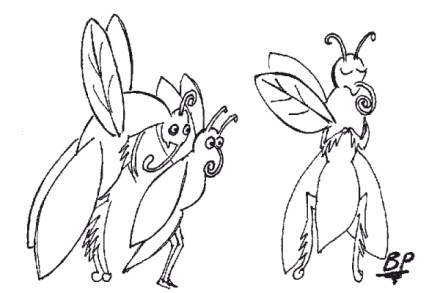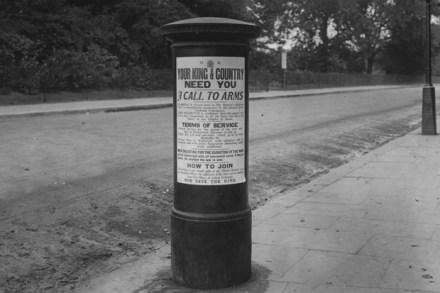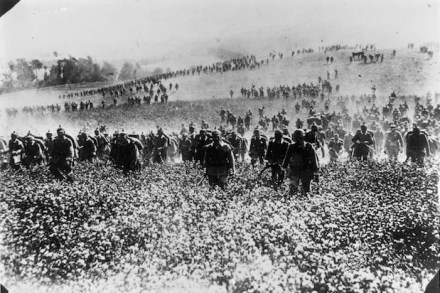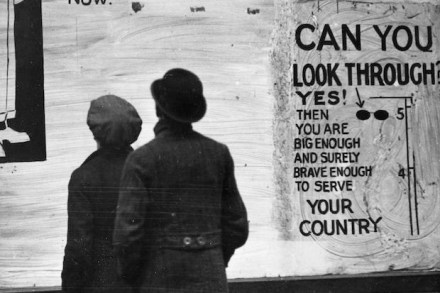Younger
‘Wow, look at that! If only I were two hours younger!’

‘Wow, look at that! If only I were two hours younger!’

Election omens Reasons for Ed Miliband to feel confident in 2015: — Only three parliaments since 1945 have run to their full five-year term. The subsequent general elections, in 1964, 1997 and 2010, all resulted in a change of government. But John Major did hold on in 1992, having gone to the country four years and
Disband Ofsted Sir: Dennis Sewell’s damning indictment of Ofsted (‘Ofsted in the dock’, 13 December) stopped short of the logical conclusion of disbanding it, arguing instead that the chief inspector, Sir Michael Wilshaw, should be supported in his efforts to purge inspectors promoting the progressive educational agenda that the coalition inherited. We’ve been here before.

Almost exactly five years ago, the Conservatives fired the starting gun for a general election — and shot themselves in the foot. ‘We can’t go on like this,’ said the poster, next to a picture of an airbrushed David Cameron. ‘I’ll cut the deficit, not the NHS.’ What on earth did it mean? No one

Home King’s Cross railway station was out of operation, stranding thousands, and Paddington saw badly delayed services after Network Rail engineering works overran beyond Christmas and Boxing Day. Connection with the internet for Xbox and PlayStation games consoles was disabled on Christmas Day and a group of hackers called Lizard Squad said it had interfered.

From ‘The War and the New Year‘, The Spectator, 2 January 1915: THOUGH the corning of the New Year makes, and could make, no difference at the front, it does present a convenient opportunity for taking stock of the military situation. The year 1915 finds the Allies and their enemies in a condition approaching stalemate.

From ‘News of the Week’, The Spectator, 2 January 1915: The first German aeroplanes which have visited us since the beginning of the war appeared on Thursday and Friday of last week. On Thursday week, about eleven o’clock in the morning, an aeroplane circled over Dover and dropped a bomb, which fell in a garden
Julie Burchill I’ve never really been on a date – I got with my first husband as a teenager, then married two further men one after the other. But in the very early days of courting my husband Dan (who is thirteen years younger than me) I was very keen to appear the worldly 35-year-old


From ‘The Great Improvisation’, The Spectator, 2 January 1915: Though we fully recognize that praise is dangerous, we must at Christmastide indulge ourselves with a little praise of the British people, or rather of the British Army, for that part of the British nation which really deserves praise is in the Army. Once again, what
From The Spectator, 26 December 1914: Egypt, as the Royal Proclamation in effect, if not in word, shows, has passed into the British Empire. She is as much a part of it as any of the Feudatory States of India. Technically we have not annexed Egypt, nor do we desire to do so, since we

From ‘An Inquest Upon German Outrages’, The Spectator, 26 December 1914: It has already been announced in the Press that English. barristers have for some time past, under instructions from the Home Office, been investigating specific state- ments with regard to alleged atrocities. The witnesses have been subjected to a careful examination, and their evidence

From The Spectator, 26 December 1914: We notice in criticisms of Sir James Barrie’s new play Der Tag, that the author represents the German Emperor as hesitating till the last moment about consenting to the violation of Belgian territory. The assumption that the German Emperor wanted peace up to the end is not perhaps capable

Dear Brothers and Sisters: Happy Christmas! Jesus, the Son of God, the Savior of the world, is born for us, born in Bethlehem of a Virgin, fulfilling the ancient prophecies. The Virgin’s name is Mary, the wife of Joseph. Humble people, full of hope in the goodness of God, are those who welcome Jesus and


From The Spectator, 26 December 1914: WE are not going to write a Christmas article on palm boughs and olive branches and the Angel of Peace. Not only is there no peace in sight for the world at the moment, but any talk of peace before our enemies are beaten, or even half beaten, and
From The Spectator, 26 December 1914: Under the heading ” Success of Recruiting Canvass,” the Times of Tuesday declares that the canvass conducted by the Parliamentary Recruiting Committee is “progressing most satisfactorily.” We most sincerely trust that this roseate view is correct. As yet only two of the nine military commands—the Eastern and Southern—have been

From The Spectator, 26 December 1914: [TO THE EDITOR OF THE “SPECTATOR”] SIR,—Two correspondents in your issue of December 12th, writing on recruiting, say: “Compel all bachelors.” There was the same feeling in my son’s Territorial battalion on the first request for volunteers—the married men excused themselves (they afterwards volunteered). But why should they be

From ‘News of the Week’, The Spectator, 26 December 1914: It is true that the British lost several trenches to the enemy at the beginning of the week, but the greater part of them had been recaptured “at this of writing.” It is quite possible that before our next issue—that is, in the present case,

From ‘A Proud Moment for Unionists’, The Spectator, 19 December 1914: The plight of Belgium was none the less only one of the causes which made it imperative for Britain to take up arms. It is always agreeable when stating a case for oneself to emphasize one’s most chivalrous motives. It is for this reason

From ‘Dreams of a Warless World’, The Spectator, 19 December 1914: In truth, there is only one way to stop war, and that is for some one Great Power first to disarm the whole world, and then to see to it that no one shall again take up arms. Universal tyranny may create universal peace.

From A Scandinavian League, The Spectator, 19 December 1914: THE meeting of the three Scandinavian Kings at Malmo is an event of more than momentary importance. According to the official statement, this meeting was arranged in order that the three Kings might confer upon the neutrality of their respective countries, especially in connexion with the
